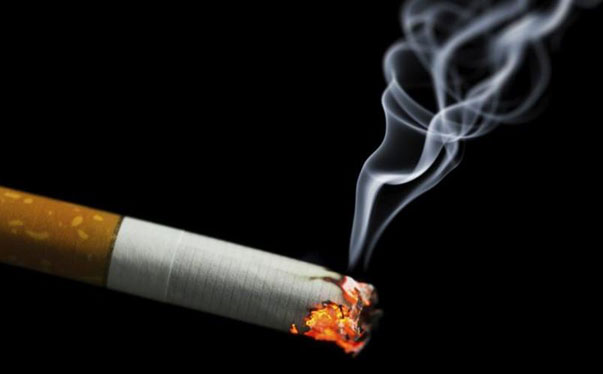
ISLAMABAD: The Senate Special Committee regarding the decline in tax collection from tobacco sector Wednesday asked the Federal Board of Revenue (FBR) to submit its response within 15 days over reasons behind the massive decrease in the revenue collection from the tobacco sector.
With Senator Kulsoom Perveen in the chair, the meeting took up the massive tobacco sector decline in tax collection despite the introduction of a third-tier tax structure on cigarette prices.
Apparently perturbed, Senator Perveen said, tax collection from tobacco sector has declined from Rs120 billion to Rs70 billion only due to the incapability of the FBR. She said the nation needs every penny while billion of rupees worth of tax has been stolen.
Present on the occasion, the FBR officials said, decline in tax collection was because of fake and illegal (smuggled and non-custom paid) cigarettes. The FBR officials also assured the committee that board (FBR) will increase tax ratio on multinational companies (MNCs) of the tobacco sector.
They said FBR will increase tax ration to stop the menace of smoking. More tax will be collected from no custom duty paid cigarettes and increase in number of check posts in Azad Jammu and Kashmir shall be undertaken to stop the illicit trade in illegal cigarettes in the country.
Speaking on the occasion, Chairman FBR Jahanzeb Khan said, action against illicit and illegal cigarette was a continuing process.
The FBR chairman further informed the Senate Committee that the Board was ready to review the imposed taxes on tobacco sector, and that the proposals regarding tax on tobacco sector are in the process.
Secretary Health Zahid Saeed rejected the facts and figures presented by FBR. He said, cigarette became cheaper due to decrease in tax on tobacco sector while thousands of people in the country were suffering owing to availability of cheaper cigarettes. He also said, production and profit of cigarette manufacturers has increased many times.
Asking for detailed and deep investigation into this sudden and heavy decline in tax collection from tobacco sector, Secretary Health Zahid Saeed stated that FBR’s revenue from tobacco sector was Rs114 bln in 2015 and in 2016, the tax collection from tobacco sector had witnessed sudden decline as the revenue stood at Rs88 billion in the year (2016).
Senator Dilawar Khan said, FBR officials were involved in tax theft and their names could be provided during in an in-camera meeting. However, Senator Perveen rejected the proposal, asking for an in-camera session of the committee to discuss the matter.
A report on the decline of tax collection from the tobacco sector was also tabled in the meeting. The report stated that the introduction of a third-tier tax structure has so far caused heavy loss to national exchequer in the form of decline in tax collection from tobacco sector, local cigarette manufacturing industry, and increase in the smoking ratio across the country.
Annually around 160,000 deaths occur in Pakistan due to smoking, while a loss of almost Rs130 billion is caused to the national exchequer. Already, the Public Accounts Committee (PAC) has taken a serious notice of the matter and initiated investigations to figure out the reasons behind this.
Furthermore, the incumbent finance minister Asad Umar has already given his verdict against the third tier structure on cigarette prices in the National Assembly Standing Committee of Finance.
The PMLN government had amended the tax structure for collecting Federal Excise Duty (FED) on cigarettes vide S.R.O. 407(I)/2017 dated 29 May, 2017, issued by the Federal Board of Revenue, which was later included in the Finance Act, 2017, by amending the relevant provisions of the Federal Excise Act, 2005.
There have historically been two slabs/tiers of FED on cigarettes produced in Pakistan. Since at least 2013, there had been an upper slab (upper tier) and a lower slab (lower tier). The rate of FED attracted by cigarettes – i.e. which slab to apply – was determined by the “retail price per pack”. The rationale for amending the FED tax structure was primarily based on an increase in the sale of illicit and non-duty paid cigarettes with estimates that up to 40 per cent market share was with the illicit sector with non-duty paid cigarettes the largest component of such illicit trade.
Former Pakistan Muslim League Nawaz (PMLN) government had introduced a three-tier FED tax structure for enhancing the revenue where FED was decreased from Rs33.4 to Rs16.0 for cigarettes with an on-pack retail price below Rs58.5.
Sources in tobacco sector have said that these amendments had apparently distorted the tax structure for collecting Federal Excise Duty (FED) on cigarettes. The common perception in the market is that it was done on the recommendations of multinational tobacco companies, without taking into consideration the legitimate concerns of the small cigarette manufacturers of Pakistan, said sources.
It is worth mentioning that reportedly MNCs in the cigarette industry has only managed to increase taxes by 14 percent in 2017-2018 but their net turnover & net profit heavily increased by 62 percent and 218 percent respectively.
A trend witnessed throughout the world including the US, UK and Europe is an effective enforcement mechanism instead of playing with the tax structure of collecting FED on cigarettes.
In practice, these government has ostensibly resulted in an increased market share of the multinational companies, vis-à-vis closure of the small cigarette manufacturers and also greatly reduced the revenue of national exchequer.






